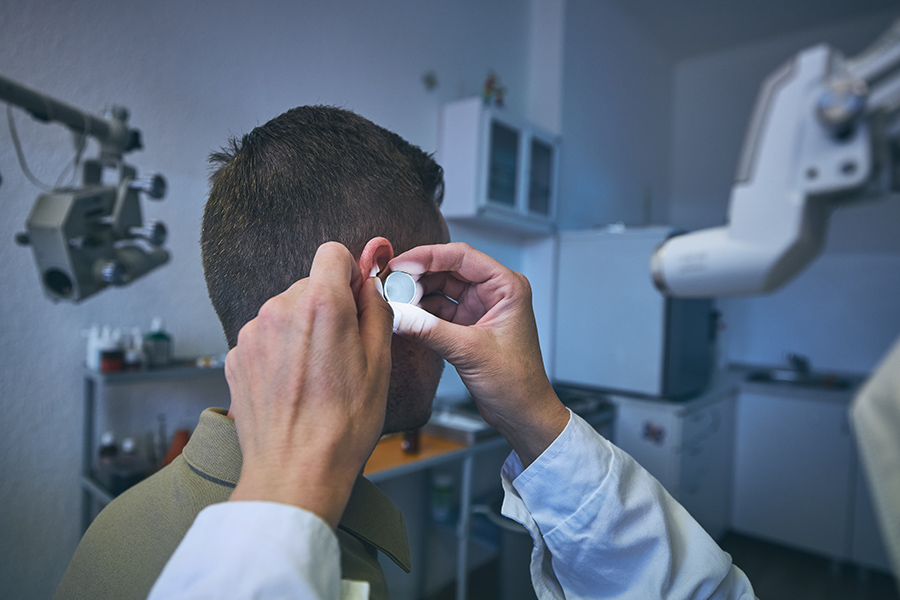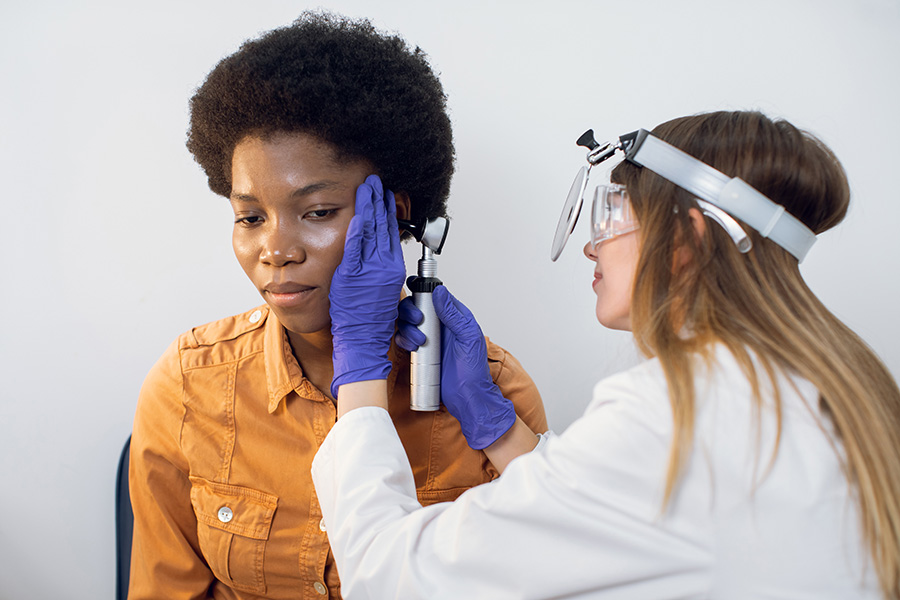Faq

Hearing loss is a condition in which a person has difficulty hearing or perceiving sound.
Hearing loss can be caused by a variety of factors, including aging, exposure to loud noise, certain medications, and certain medical conditions.
Some common signs of hearing loss include difficulty hearing in noisy environments, difficulty understanding speech, and needing to turn up the volume on television or radio.
There are three main types of hearing loss: conductive, sensorineural, and mixed.
Hearing loss is typically diagnosed through a hearing test called an audiogram.
Some common treatments for hearing loss include hearing aids, cochlear implants, and assistive listening devices.
While there are no proven home remedies for hearing loss, some people may find relief from tinnitus through home remedies such as white noise machines or sound therapy.
Some causes of hearing loss, such as aging, cannot be prevented. However, exposure to loud noise can be reduced through the use of earplugs or noise-cancelling headphones.
A hearing aid amplifies sound and makes it louder, while a cochlear implant bypasses the damaged parts of the ear and directly stimulates the auditory nerve.
Proper care for hearing aids includes cleaning them regularly, replacing the batteries as needed, and storing them in a safe, dry place.
Some insurance plans do cover the cost of hearing aids, but coverage varies depending on the plan.
Many hearing aid providers offer a trial period for patients to try a hearing aid before purchasing it.
The lifespan of a hearing aid depends on the type and the level of usage. On average, they can last between 3-7 years.
Adjusting to wearing a hearing aid can take time and patience. It can take several weeks or even months to get used to the new sounds and sensations.
There is no cure for most types of hearing loss, but it can be managed with the help of hearing aids or other devices.
The cost of a hearing aid varies depending on the type and the brand, but it can range from $1,000 to $5,000.
Look for providers who are certified by the American Speech-Language-Hearing Association (ASHA) or the American Academy of Audiology (AAA).
Aural rehabilitation is a process that helps people with hearing loss adjust to their new listening environment

Navigating Pulsatile Tinnitus in Seniors: Insights and Effective Management
Navigating pulsatile tinnitus in seniors requires a tailored approach that considers both insights and effective management strategies. As individuals age, their auditory health may become more complex, necessitating specialized care.

Navigating Pulsatile Tinnitus in Adults: Insights and Treatment Strategies
Navigating pulsatile tinnitus in adults requires a nuanced approach that combines insights and treatment strategies. From understanding the underlying causes to exploring effective

Unveiling the Mystery of Pulsatile Tinnitus: A Comprehensive Guide for Adults
Unveiling the mystery of pulsatile tinnitus offers a comprehensive guide for adults seeking understanding and relief from this condition. From unraveling its origins to exploring treatment options, this guide provides invaluable insights tailored to adult audiences.

